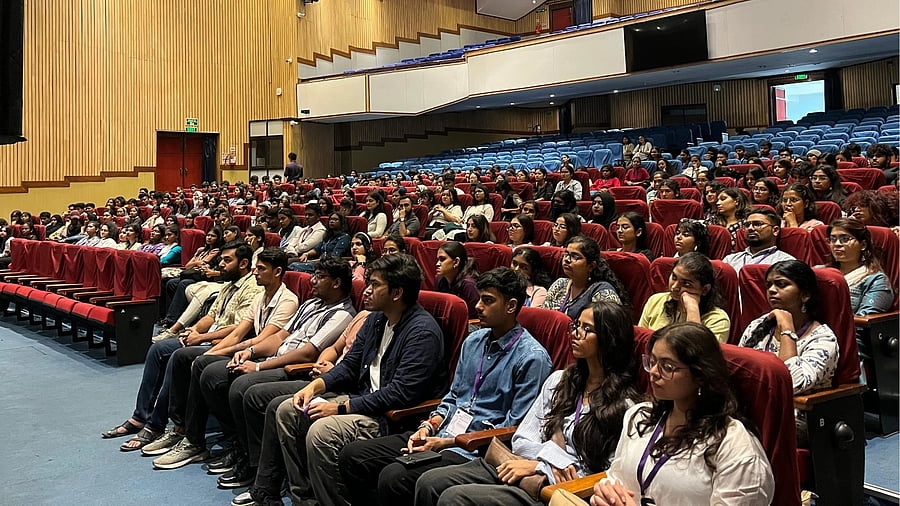
Participants at the World Suicide Prevention Day event in the city on Wednesday.
Credit: DH PHOTO
Bengaluru: The suicide re-attempt rate in Bengaluru stands at 1.19 per cent, while deaths from re-attempts are at 0.2 per cent, data from Nimhans has shown.
The findings are from the N-SPRITE (Suicide Prevention, Research, Implementation, Training and Engagement center) Urban Self-Harm Study (USHAS), conducted by Nimhans in collaboration with the National Health Mission, Karnataka.
USHAS has helped reduce re-attempts among persons admitted to public hospitals after self-harm. Since 2022, the project has been active in 16 hospitals, including Victoria, KC General, and Bowring and Lady Curzon in Bengaluru.
"More than 10 per cent of people who attempt suicide can die by suicide. It is important to provide support. Under USHAS, we have been able to bring this rate down to negligible levels by handholding such people," said Dr Pratima Murthy, Director of Nimhans.
The programme has set up self-harm registries to record details of those arriving at emergency departments. Patients are screened for suicide risk, their characteristics studied, and brief interventions with telephone follow-ups are provided to reduce future self-harm.
So far, 20,861 people who attempted self-harm have been included in these registries. Of them, 44.37 per cent were in the 25–39 age group and 28.87 per cent in the 18–24 group. Men accounted for 55.76 per cent, women 44.15 per cent, and transgender persons 0.09 per cent.
The data showed a stronger link between self-harm and a history of alcohol, nicotine, or substance use. Interventions were given to 16,264 people, while others were excluded due to death or being unreachable over the phone.
Of those who received interventions, 194 people (1.19%) re-attempted self-harm, and 37 (0.2%) died from the re-attempt.
"People should know help exists and they can take it. Before USHAS, there was no data available to look back at," said Dr Anish Cheria, Lead N-SPRITE, Nimhans.
